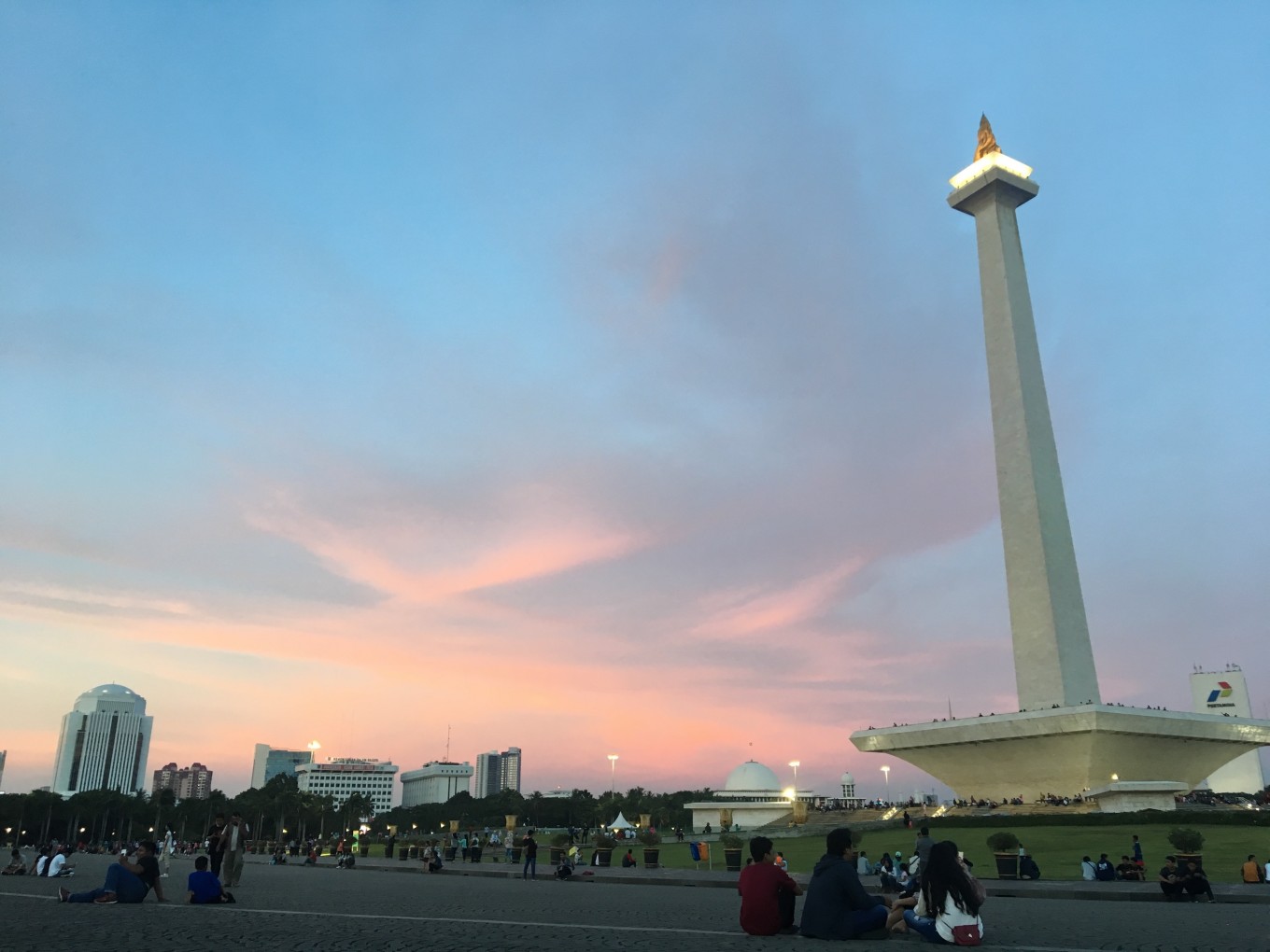Popular Reads
Top Results
Can't find what you're looking for?
View all search resultsPopular Reads
Top Results
Can't find what you're looking for?
View all search resultsInsight: Jakarta’s anniversary: Celebrating the people
Regardless of infrastructure investment, without openness and social tolerance, we will soon disagree to be in a region we call a city. That may be the end of Jakarta. #insight
Change text size
Gift Premium Articles
to Anyone
I
have often avoided questions about the state of Jakarta. Such questions would weigh down my continuing passion to create great places, support caring communities and build livable cities. I would simply nod at the list of physical sets of problems Jakarta needs to work on; from frequent flooding to a lack of public spaces and other livability factors.
But on the eve of its anniversary, let me sum up conditions we must commit to, as otherwise we may soon lose each other, not just get lost ourselves, in this thriving city.
Jakarta is living on dualism. As Dee Lestari writes in her novel Supernova, we are pulled between wanting to be the cool East and acting like Easterners here, while being pushed so hard by the West, which also curses us the loudest.
In its dualism, key to Jakarta’s problems is its inability to build a clear character. Does it want to be the center of government like Canberra, Washington, DC., and Brasilia? Or does it insist on coupling that with being an economic hub like London, Tokyo and Seoul? Each option comes with sets of conditions we must devote to. Choosing one without fulfilling our duties to civic building and to the preservation of our values is irresponsible and self-destructing.
Let’s start by agreeing on the first condition we must meet in Jakarta. The city must be open to anyone.
As McKinsey projects that Indonesia will become the world’s seventh-largest economy by 2030, the true asset that can help the country live up to that prediction is its people. We have not only a demographic dividend in statistical terms but the power of sharing and caring for each other unlike other nations.
Regardless of infrastructure investment, without openness and social tolerance, we will soon disagree to be in a region we call a city. That may be the end of Jakarta.
Values that bind us together, regardless of different goals, backgrounds and reasons for being here, are clearly expressed in our physical assets, city policies and relationship with the urban environment, particularly with the most vulnerable areas, such as rivers and coasts.
Without our strong will to promote openness, those assets will overwhelmingly lose identifiable health, civic function, accessibility and welcoming characters.
Second, Jakarta needs to have something for everybody. Its diverse offerings, like culinary rows, thematic streets and business enclaves, are always driven by people’s interests in bringing charming pieces from their respective homes to share with others.
Third, Jakarta must be able to attract and maintain demand. Jakarta’s government must help guide market-driven growth with a clear and actionable plan to resolve underlying infrastructure needs.
With a stronger core, places can be cared for by the people and businesses that use them, and good governance can support and oversee them through clear indicators.
Fourth, Jakarta needs not only a framework for urbanization but a clear goal guided by the character it has chosen to offer. To support this, each subdistrict must become a complete integrated live-work-and-play region.
Without it, people will still need to cut across the city from their affordable homes in one corner to find jobs in the other corner, taking them away from quality family time.
Flooding will continue to haunt us, and clean water will remain unjustly inaccessible. The city’s input and output will continue be unbalanced, and waste will define us all as uncaring city dwellers.
Our Jakarta must also be sustainable, offering a livable environment for all. This fifth condition must be translated into relatable action for everyone to be a part of the effort to care for our urban and natural assets, to clean our streets and rivers, to activate places with positive interaction and to create sustained platforms to lead more people to a better tomorrow.
Finally, and the most important point, Jakarta needs to nurture a civil society. The chaotic yet charming places in our city can bring people together or break them apart. If people act gallantly, places we create in our cities can be much more engaging and meaningful. Therefore, we cannot take civic and societal health in Jakarta for granted.
Three early actions can help guide us toward these desired conditions.
Immediately, we must build accountability-guided governance, where urban management is improved with crowd-sourced data collection.
In parallel, public education can also focus on basic and technical skills for modern citizens, especially for girls. And lastly, we can build societal strength against polarization by promoting Jakartans to interact freely without bias to race, religion or ideology.
Regardless of its dualism and ever-moving goal-post set for Jakarta, we all remain dearly rooted in this city. Can you imagine Tucker Elliot, the travel writer, happily flying to Jakarta via Atlanta, Frankfurt, Amsterdam, Bangkok and Kuala Lumpur? As the saying goes, we all return to Jakarta no matter how far we go away and how hard life is here.
Celebrating the 492nd anniversary of Jakarta is indeed celebrating its people. We must take care of the most important asset of all we possess — the Jakartans — or we may lose each other in this city, very soon.
***
The writer is an award-winning architect, founder and CEO of Terra Lumen Indonesia, and former deputy to leading green city mayors of Chicago and San Francisco.











